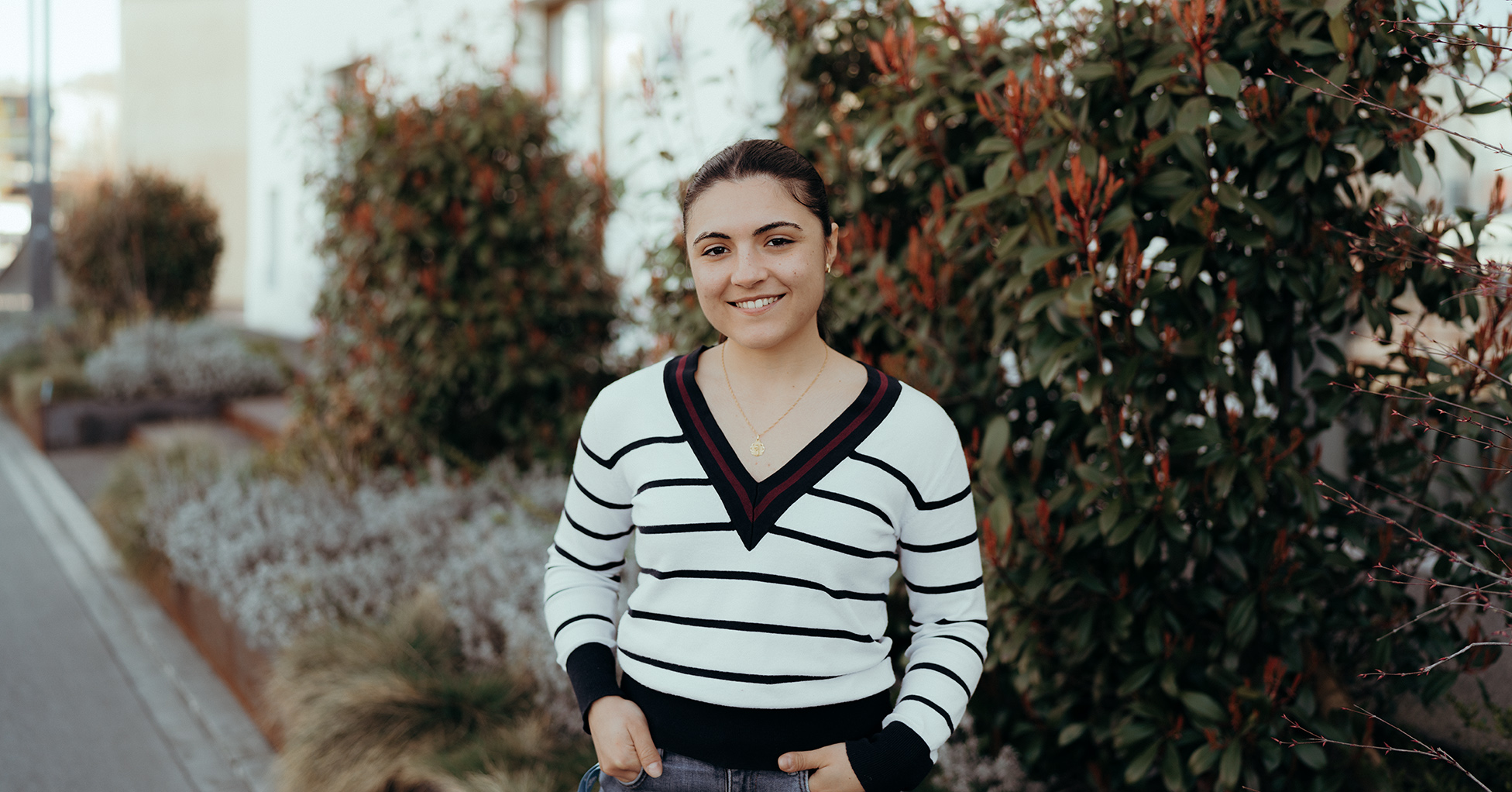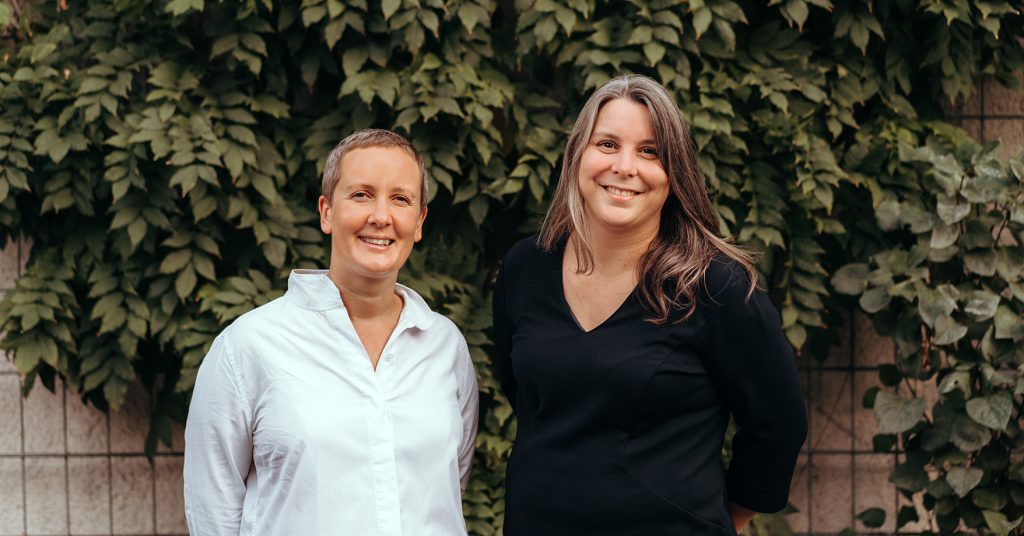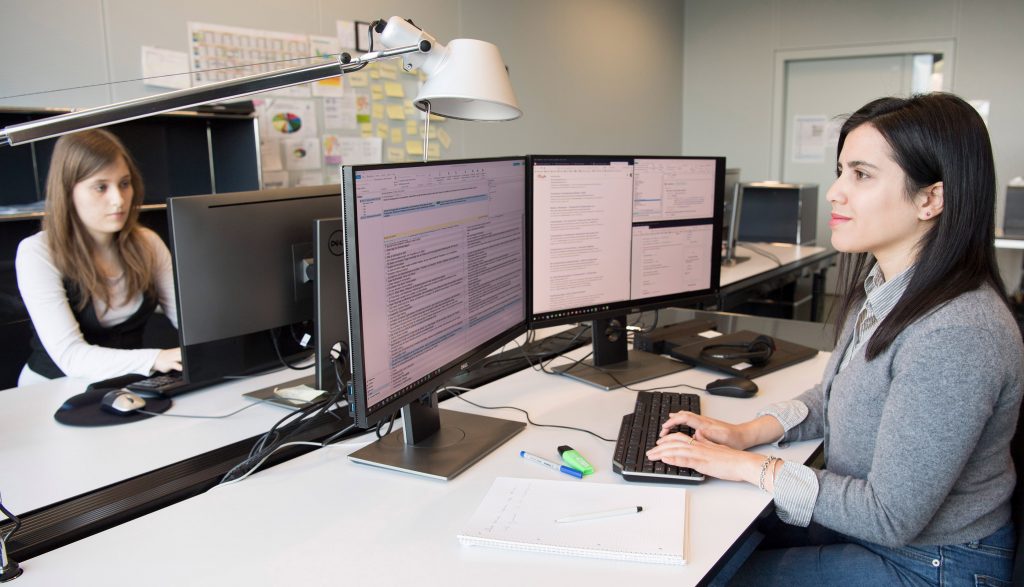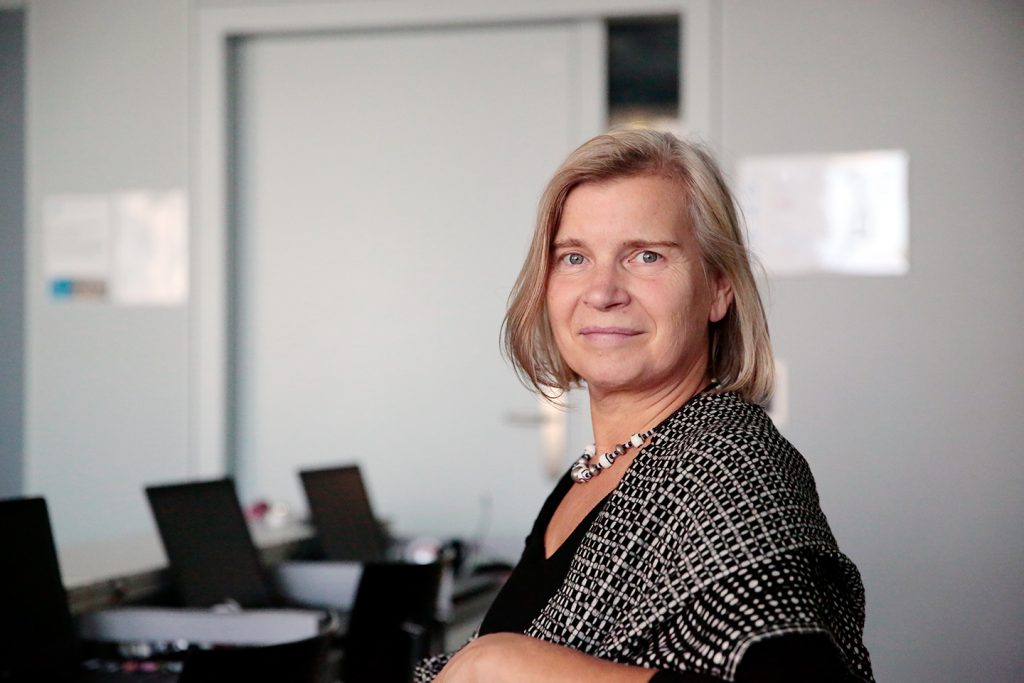What brings a translator and PhD student from the Universidad de Alicante to the ZHAW? The IUED’s expertise in the field of machine translation. In this interview PhD student Alicia Picazo talks about her research, the IUED’s MT Crisis Response project, and how a translation app can help in an emergency.
Interview by Chantal Wright
In March the Institute of Translation and Interpreting hosted Spanish doctoral student Alicia Picazo. Alicia is in the second year of a PhD programme at the Universidad de Alicante. She visited the ZHAW with the financial support of the CIUTI (Conférence internationale permanente d’instituts universitaires de traducteurs et interprètes) PhD research travel scheme.
Alicia, tell us about your PhD project and why you chose to come to the IUED.
I am in the early stages of my PhD. My research thus far focuses on testing neural machine translation tools. Specifically I am analysing the quality of the machine’s output in relation to technical texts. Eventually I hope to create a post-edition guide to test whether there is any improvement, both in quality and efficiency.
I chose the IUED because of the project I’m involved in here, MT for Crisis Response. During my stay I witnessed the way the IUED works and its atmosphere. I loved how people were so nice and welcoming. I loved the process of collaboration, how every insight is taken into account, systematised, and incorporated into the process.
You also work as a translator?
Yes, at the moment I am studying part-time and working full-time as an in-house translator for TRADULOC in Madrid. I work from home and occasionally travel into the office. I specialise in medical and technical translation from English to Spanish. I also do some transcreation in the field of marketing.
What attracted you to translation?
Before I started my BA, I didn’t even know what translation was. Of course, I knew about the process of transferring a text from one language to another. Once I started translating, however, I became fascinated by all the cognitive processes involved. The creativity you need to invest, the effort not only of translating words, but also meanings and intentions. At first, I was amazed by translation as a general phenomenon, but then I discovered specialized languages, terminology, and technologies. I realized that I could have an exciting career in professional translation as well as in scientific research.
You came to the ZHAW to work with the Human-Machine Communication research team headed by Professor Alice Delorme Benites. Tell us about the project on machine translation you have been involved in during your stay. What have you learned?
There is a tendency to think about machine translation (MT) as the enemy, as something that takes away our jobs. In a crisis situation, however, such as the arrival of large numbers of Ukrainian refugees, the technology really is a way of rapidly removing barriers. Human language professionals will remain the gold standard for translation and interpreting, especially in sensitive contexts. Nonetheless, MT is a crucial auxiliary tool in situations where human interpreters are not readily or easily available.
The IUED team is looking at the use of machine translation apps such as Google and SayHi Translate in crisis contexts involving displaced persons in Switzerland. In a situation where the displaced person doesn’t speak German and the Swiss German speaker doesn’t speak, for example, Ukrainian or Pashto, the two parties communicate via these translation tools.
The team is currently evaluating the use of these apps in three communicative situations: in hospitals, schools and in immigration offices. Do the two parties involved understand each other? Does the translation tool make them feel uncomfortable? What are the implications of certain app functionalities for the communicative situation (e.g. the bilingual chat feature)? In short: what are the benefits and disadvantages of using MT for crisis communication involving displaced people?
Spain is facing the same challenges as Switzerland in terms of its crisis response. What I have learned here is therefore very applicable at home. I would like to continue working with Professor Delorme’s team after my return, remotely.
Can you be more specific about the challenges of crisis communication in the Spanish context?
In Spain, there is a system in place whereby you can book an interpreter both in-person for scheduled events but also for remote interpreting. If there is no interpreter available for financial reasons or because the request was made at short notice, the communicative situation relies on finding somebody who knows both languages, or an MT device is used to communicate. That’s the idea in principle, though it doesn’t always work out this way.
What will you take with you for your PhD research from your time at the IUED?
These two weeks were a turning point for my PhD. I learnt new methodologies and organizational processes that I can apply to my project. I also gained new insights into MT tools. I look forward to collaborating further with the IUED.
What are your impressions of Switzerland?
The people are very polite and the streets are very clean, though I miss the Spanish sun – it’s hot in Spain at the moment. The mountains are breath-taking. I took advantage of my free weekend to go skiing in Andermatt and had a fantastic time.
More about Alicia Picazo
Alicia Picazo began her PhD in September of 2021 under the supervision of Professor Adelina Gómez Gónzález-Jover at the Universidad de Alicante. She is passionate about the idea of being able to contribute to the scientific community in translation, and believes that conducting research is the best route to self-improvement. After her undergraduate degree in Translation and Interpreting at Alicante, Alicia moved to Madrid to study for a Masters degree in Teaching. She started to work as a translator and then returned to Alicante for doctoral study.
MT for crisis communication – two guides
- Maschinelle Übersetzung (MT) für den Notfall : Ratgeber zum Einsatz von MT Tools für die Kommunikation mit Flüchtlingen aus der Ukraine
- La traduction automatique pour les cas d’urgence : un guide pour la communication français-ukrainien-russe
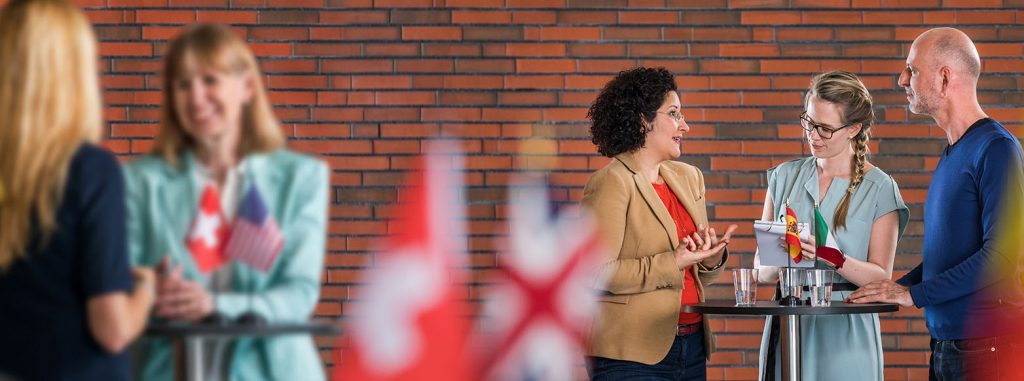
The IUED Institute of Translation and Interpreting is the ZHAW competence centre for multilingualism and language mediation. It is actively engaged in conducting research, offering degree programmes and continuing education courses, and in providing services and consulting in these fields.
The BA in Multilingual Communication and the specialisations in Professional Translation and Conference Interpreting within the MA in Applied Linguistics are practice-focused degree programs for the communication experts of tomorrow.
The IUED has a strong international reputation. It is a member of prestigious international networks, such as CIUTI andEMT, and it has close ties (link in German only) with institutes and universities in Switzerland and abroad.
